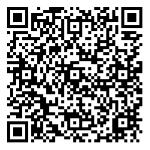| 篇名 |
對營業秘密法第13條之4規定的檢討與建議--以日本法之經驗為借鏡 |
| 並列篇名 |
The Review and Advice Regarding the Article 13-4 of the Trade Secrets Act: Taking The Japanese Law's Experience As Reference |
| 作者 |
張天一、洪兆承 |
| 中文摘要 |
美光科技公司與聯華電子公司於2018年間所發生一連串侵害營業秘密之爭訟,再次凸顯出科技業之競爭,已經從技術層面蔓延至法律層面。而營業秘密法於2013年的修正中,所增訂第13條之4對法人之「兩罰規定」,在企業的法律戰中成為雙面刃,在企業藉此保護自身營業秘密的同時,亦可能遭競爭對手以此作為箝制。本文對此一規定在解釋與適用上之相關問題進行分析,並就日本立法例為比較法之介紹,檢討法人刑事責任之基礎以及業務關聯性之判斷標準。本文認為監督責任可作為法人刑事責任之基礎,但現行營業秘密法上之法人免責條款,在適用上有其困難性,或許可藉由修法或實質標準之建立,解決一定程度之問題。 |
| 英文摘要 |
The series of trade secret-related disputes of Micron and UMC in 2018 highlighted the competition in the technology industry has extended from the level of technical to legal. The “double punishment” provision under Article 13-4, which was added in the 2013 amendment of the Trade Secrets Act, has become a double-edged sword in company’s legal wars. It may be used by a company to protect its own trade secrets, however, competitors may also use it against the company. This article analyzed the relevant questions related to this provision’s application and interpretation, and conducted a comparative study by introducing Japanese laws to review the foundation of corporate criminal liability and the criteria of business relevance. This article opined that supervisory duty could serve as the foundation of the foregoing liability, but the corporate liability exemption clause under the Trade Secret Act has difficulty in application. Such problems may be solved to some extent by amendment or establishment of substantial standards. |
| 起訖頁 |
28-48 |
| 關鍵詞 |
營業秘密、美光與聯電案、法人刑事責任、兩罰規定、不正競爭防止法、Trade Secret、The Case of Micron and UMC、Corporate Criminal Liability、Double Punishment、Unfair Competition Prevention Act |
| 刊名 |
月旦法學雜誌 |
| 出版單位 |
元照出版公司
|
| 期數 |
202002 (297期) |
| DOI |
10.3966/102559312020020297002 複製DOI DOI申請 |
| QRCode |
 |
| |








